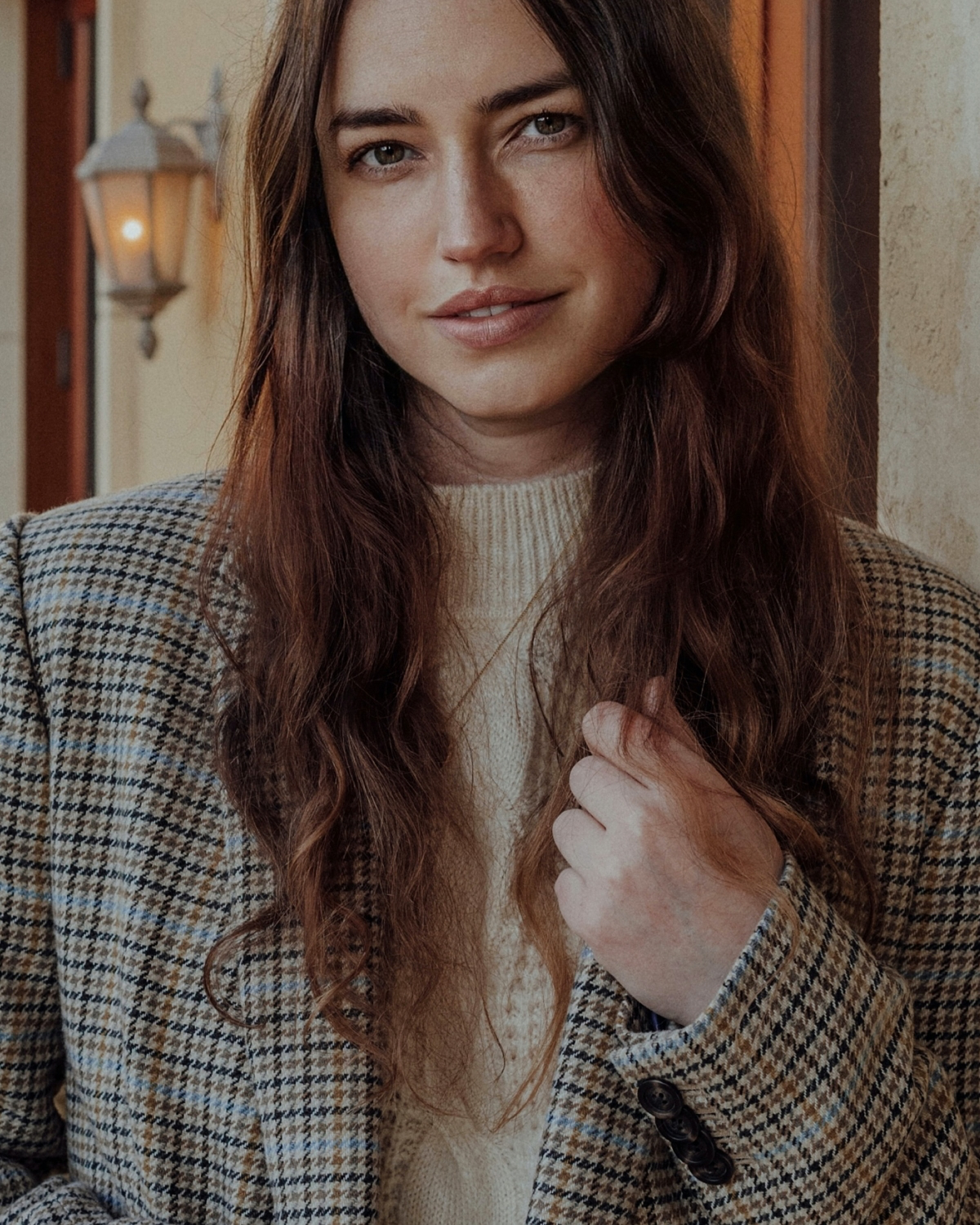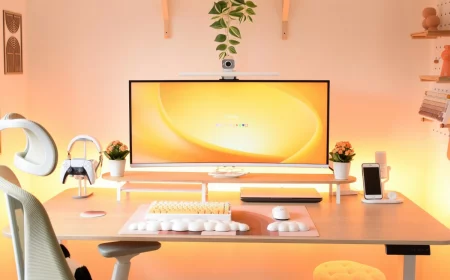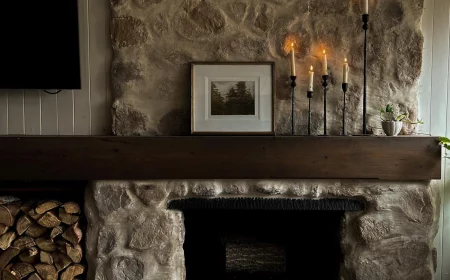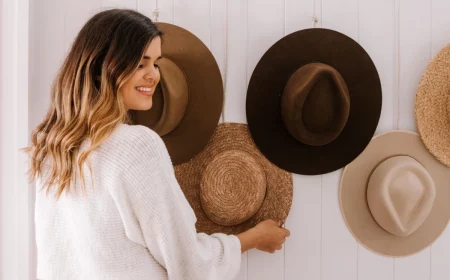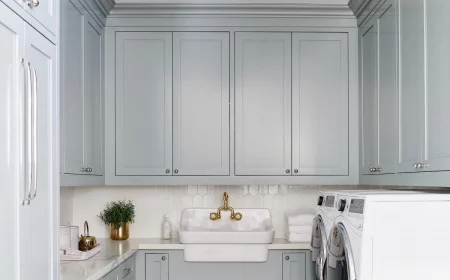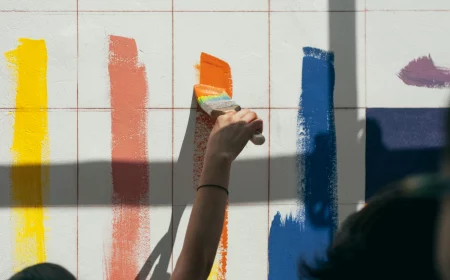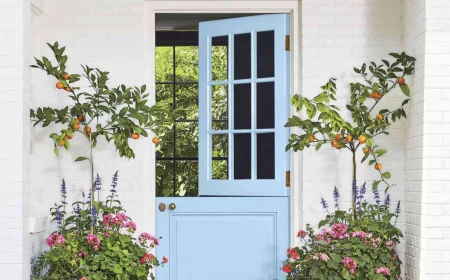Nailing the 70s Living Room Vibe: A Pro’s Guide to Getting It Right
I’ve spent a long time working with furniture, and my hands can tell the difference between original velvet and a cheap modern knock-off just by touch. I’ve also seen the ugly scorch mark a poorly wired vintage lamp can leave on a beautiful wood console. It’s a lesson you only need to learn once. When people bring up 70s design, they usually jump straight to shag carpets and avocado green, but honestly, that’s just scratching the surface.
In this article
This style was about so much more. It grew out of a time of huge social shifts and new technology. It was all about exploring new materials, new ways of living, and a kind of deep, honest comfort that’s hard to find today. Creating an authentic 70s-inspired room isn’t about just buying a lava lamp and calling it a day. It’s about understanding why these rooms felt so inviting. It’s about the heft of the furniture, the rich texture of the fabrics, and that warm, low light that made people want to sit down and actually talk to each other.

So, let’s get into how to build a space like this the right way. We’ll get the foundation right, from the materials under your feet to the science behind the moody lighting. This is a peek into my process, full of pro techniques and critical safety checks to keep your retro-inspired home both stylish and sound.
Why It Looked That Way: The Materials and Mindset
To really get this style, you have to understand the “why” behind the what. The design choices back then weren’t just random; they were a direct result of new tech and a fresh perspective on what a home should be. As someone who restores this stuff, knowing the material science is everything.
Sound, Comfort, and the Mighty Stereo
High-fidelity stereo systems became a huge deal for the average household. Suddenly, your living room wasn’t just for reading or watching TV; it was a personal concert hall. This created a new problem: terrible acoustics. Sound waves were bouncing off plaster walls and hardwood floors, making everything sound tinny and chaotic.

The solution? Soft, absorbent materials. Everywhere. This is the real reason for the explosion of shag carpet, fabric wall hangings, and chunky, upholstered furniture. That deep-pile shag carpet is an amazing sound dampener. Its long fibers trap sound, killing echo and making a room feel instantly cozier. Think of it like putting acoustic foam in a recording studio, but way more fun to walk on. The same logic applies to macrame art and thick, textured drapes. They weren’t just for looks; they were functional acoustic treatments.
The Plastics Revolution: Bending the Rules of Furniture
This was the golden age of consumer plastics. Materials like acrylic and polyurethane foam completely changed furniture design. Before this, creators were mostly stuck with the limitations of wood and metal. You can’t exactly mold a plank of oak into a perfect sphere or a flowing, seamless S-curve, right?
Polyurethane foam was a game-changer. It let designers build soft, sculptural furniture without a traditional heavy frame of wood and springs. This is how we got those iconic, low-slung, lumpy sofas that just beg you to lounge on them. They were often lighter, cheaper to make, and ushered in a whole new, more relaxed way of sitting.

Heads up, though! If you find an original sofa, the first thing to check is the foam. After decades, that old foam often becomes brittle and crumbles into a fine, yellow dust. It almost always needs to be replaced. For a typical three-seater sofa, expect to pay between $200 and $500 for new, high-resilience foam from a supplier like Foam By Mail or a local upholstery shop. It’s a must-do for comfort and air quality.
Lighting: Keeping It Low, Warm, and Moody
The lighting philosophy was a direct rebellion against the harsh, overhead fluorescent lights that were common before. The goal was to create pools of warm, indirect light at human level. That’s why you see so many table lamps, floor lamps, and even those glowing plastic cube tables. The light was meant to be part of the decor, not just a utility.
A lava lamp is the perfect example. It’s just simple physics: a small lightbulb heats a special colored wax in a glass vessel. As the wax heats up, it gets less dense than the liquid it’s in, so it rises. At the top, it cools, gets denser, and sinks again. It creates mesmerizing motion and a warm glow, but almost no functional light. Its whole purpose is to create a mood. It’s all about vibe over brightness.

Pro Techniques for a Truly Authentic Look
I’ve learned that a successful 70s interior comes down to a few key techniques. It’s not just about what you buy, but how you assemble it all. This is where you go from a messy collection of old stuff to a cohesive, intentional space.
Mastering the Art of Layering Textures and Patterns
The “more is more” vibe of the era can get chaotic fast. The pros use a simple system to layer patterns without giving everyone a headache. A good rule of thumb is to use three patterns of different scales.
- Start Large: This is your dominant pattern, your anchor. It could be a bold geometric wallpaper or a large-print fabric on your main sofa.
- Go Medium: Next, add a pattern that’s about half the size of the first. If your wallpaper has 12-inch swirls, maybe your curtains have a 6-inch floral design.
- Finish Small: Finally, bring in a small, simple pattern on accents like throw pillows. A simple stripe or a tiny repeating print works perfectly.
The secret to making this work is a unified color palette. Pick three or four main colors—say, rust orange, chocolate brown, gold, and cream—and make sure each pattern features at least one of them. For texture, use the same logic: balance a smooth plastic side table with a rough, handwoven wall hanging. That contrast is what creates interest, not chaos.

Hunting for Genuine Pieces
Finding authentic furniture is a treasure hunt. You need to know where to look and what to look for. Flea markets are fun, but I find the best stuff at estate sales in neighborhoods full of older homes. For online, you need to be savvy.
Good to know: On Facebook Marketplace or Craigslist, use specific search terms like “MCM sectional,” “brutalist credenza,” “chrome arc lamp,” or “teak bookshelf.” Etsy is fantastic for smaller decor items and textiles, while sites like Chairish are for higher-end, curated (and pricier) finds.
Here’s what to look for when you’re inspecting a piece:
- The Weight Test: Real period pieces often used solid woods like teak and walnut or very thick wood veneers. They’re almost always heavier than a modern reproduction made from particleboard and laminate.
- Check the Bones: Look at the joints. Are drawers put together with dovetail joints? That’s a sign of quality. How are the legs attached? Are they solidly integrated into the frame, or just screwed into a cheap metal plate?
- Feel the Materials: Get your hands on it. An authentic chrome piece will feel cold and solid. A plastic-molded chair will have a certain heft and seamlessness that’s hard to replicate cheaply.
A young person I was mentoring once bought a “vintage” arc lamp online. When it arrived, the base was filled with sand instead of being solid marble, and the wiring was terrifyingly thin. Learning to spot these details saves you from wasting money and bringing a potential hazard into your home.

Faking the Conversation Pit
Ah, the sunken living room. It’s an iconic feature that created a cozy, intimate zone within a larger room. While digging a hole in your floor is a massive renovation, you can absolutely create the same feeling with smart furniture arrangement.
The trick is to use low-slung furniture arranged in a tight, inward-facing group. A big sectional sofa is perfect. Or, you can face two low sofas toward each other, keeping them no more than 6-7 feet apart to encourage easy conversation. The coffee table should be large and low, acting as the central anchor. The final touch? A large, distinct area rug. It’s essential for visually marking the boundary of your “pit” and making it feel like a special, dedicated zone.
It Wasn’t the Same Everywhere: Regional Flavors of the Style
That 70s look wasn’t a monolith. Depending on where you were, the style had a totally different flavor, often shaped by the local climate and culture.

The Cozy American Suburban Den
In many parts of the country, especially places with cold winters, the style was all about warmth and enclosure. This is where you find that classic dark wood paneling, which created a cozy, den-like feeling. The color palette was deeply earthy: harvest gold, avocado green, and burnt orange. Furniture was often heavy and substantial, covered in durable plaid or herringbone wool. It was a practical, family-focused take on the style.
California Bohemian Cool
Out on the West Coast, the vibe was much lighter and more open. Instead of dark paneling, you’d see white walls and huge sliding glass doors connecting the inside to the outside. The color palette was still earthy but leaned more toward terracotta, sand, and ocean blue. Natural materials were king: rattan and wicker furniture, jute rugs, and tons of houseplants. This was the free-spirited version, all about a relaxed lifestyle and a connection to nature.

Sleek European “Space Age”
Meanwhile, over in Europe, designers were on a totally different trip. This was the “Space Age” look, inspired by a fascination with the future. It was defined by molded plastic, shiny chrome, and sleek glass. The colors were bolder and more primary—bright reds, sunny yellows, and stark whites. It was less about earthy comfort and more about futuristic, sculptural forms. This super-modern look found its way into more high-design urban apartments in the US.
Bringing the Vibe Home (Without Breaking the Bank)
You don’t need a time machine to enjoy this style. It’s all about adapting the core principles to your modern home and knowing where to spend your money.
- Don’t Rip Out That Paneling! Have dated, dark wood paneling? Don’t despair. After a good cleaning (a TSP substitute works wonders), a light scuff-sanding, and a coat of high-adhesion primer like Zinsser B.I.N., you can paint it. A soft white can give it a light, modern feel, while a deep teal or mustard yellow can turn it into a stunning feature wall. For a modern take on those classic colors, try something like Sherwin-Williams’ “Renwick Golden Oak” for a sophisticated gold or Behr’s “Guacamole” for a less-jarring avocado.
- The “70s Vibe” Starter Kit: You can get the feeling for under $400. Start with these three things: 1) A big shag or high-pile area rug (you can find great ones on Wayfair or Rugs USA for $200-$500). 2) A set of velvet or corduroy pillow covers in rust, gold, or olive green (check Amazon or Etsy for sets around $40). 3) A macrame plant hanger or two (World Market or a local craft fair for about $25 each). Boom. Instant vibe shift.
- Shop for Shapes, Not Just Vintage: You don’t always need a pricey original. Look for modern furniture that just has the right silhouette. A new sofa with a low back, blocky arms, and clean lines can fit right in, especially if you get it in a classic color.

Seriously, When to Call a Professional
I love a good DIY project, but some jobs are just not worth the risk. Based on some real horror stories I’ve seen, here’s where I always tell my clients to hire a licensed pro.
1. Electrical Work. This is non-negotiable. Vintage lamps almost always have old, brittle, or ungrounded wiring, which is a major fire hazard. From my experience, a licensed electrician will charge between $40 and $90 to safely rewire a simple table or floor lamp with modern, up-to-code components. It is the single most important safety investment you can make.
2. Complex Upholstery. Doing a simple dining chair seat is a great weekend project. But trying to reupholster a curved sectional with button tufting yourself? That’s a recipe for a lumpy, crooked disaster. A pro knows how to work with tricky shapes and get the tension just right.
3. Structural Changes. If you’re dreaming of a real sunken living room, please, do not take a saw to your floor joists. Any modification to your home’s structure requires a structural engineer and proper permits. The risk of causing serious damage to your home is just too high.

Final Word: Safety First, Style Second
Building a beautiful room is the goal, but building a safe one is the priority. With vintage items, you have to be aware of potential hazards that come with age and old manufacturing standards.
A quick but important tip on fire safety: Many synthetic fabrics from that era are incredibly flammable. Modern furniture has to meet strict fire safety codes, but vintage pieces have no such protection. If you have a vintage sofa with its original fabric, keep it far away from fireplaces, space heaters, or even candles. For pieces you’ll use a lot, I strongly recommend reupholstering with modern, fire-retardant fabric and foam.
By understanding the materials, the construction, and the ideas behind the design, you can create a space that’s not just beautiful and authentic, but also comfortable and safe for today. It’s a style that’s all about personality and bold comfort, and that’s something that never goes out of style.

Galerie d’inspiration


Love the intimate feel of a 70s sunken living room but can’t start excavating your floor?
You can create the same effect with clever furniture placement. The goal is to establish a distinct, low-slung conversation zone. Start with a large, plush area rug to define the space—think a dense flokati or a modern, high-pile shag. Arrange ultra-low profile, armless modular seating around the perimeter. Pieces like the iconic Ligne Roset Togo, or more accessible modern equivalents, are perfect for this. They encourage lounging and create a visual
The Organic Curve: Look for seating with soft, rounded edges and no hard angles. The Pacha Lounge Chair, designed by Pierre Paulin in 1975 and now reissued by GUBI, is the epitome of this style. It feels like sitting on a cloud and its curvaceous form breaks up the straight lines of a room.
The Structured Block: For a more grounded, substantial feel, consider modular, blocky sofas. The Soriana sofa by Afra & Tobia Scarpa for Cassina, with its distinctive metal clamp holding the upholstery, is a masterclass in this relaxed yet intentional design. It’s less a piece of furniture and more a landscape for living.
Both deliver that low-to-the-ground 70s comfort, but one feels airy while the other feels anchored.
